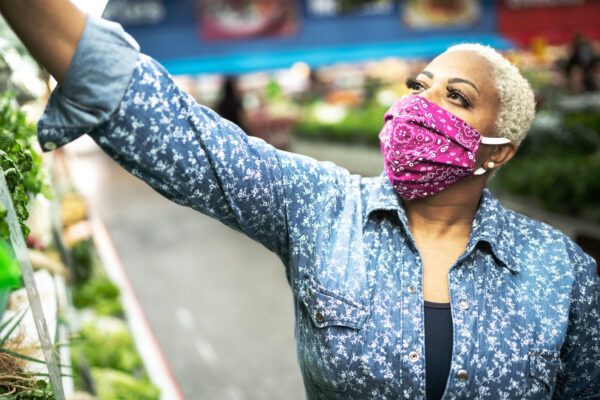Mask mandates are now again illegal in Texas. Gov. Greg Abbott recently decreed that government entities cannot require masks, and municipalities can’t impose their own mandates without falling afoul of the law.
Texas is not alone. Several other states, including Illinois, Minnesota and South Carolina, loosened mask requirements after the announcement from the Centers for Disease Control and Prevention (CDC) that fully vaccinated people can “resume activities” unmasked.
You could almost hear a collective sigh of relief, tinged with some confusion, when the CDC proclamation went viral. Soon enough, parents of young children who can’t yet get vaccinated protested this hasty unmasking. We need to listen to them. But we also need to listen to those in even higher risk populations who can receive vaccines but whose drug regimen reduces the shots’ effectiveness. With few exceptions, this is an untold story.
We need to pay attention to what the CDC’s new guidelines mean for our family, friends and neighbors with compromised immune systems. We can’t trust that the unvaccinated will follow an undeclared “honor principle” and protect others as they go about their public business.
I remember the elated text I got from my 68-year-old mother when she got her first dose of Moderna in January. My mom has had two kidney transplants, the first when she was 36 and the most recent in 2005. These surgeries saved her life when she was dying from end-stage renal failure. The potent drugs she’s taken for over 30 years suppress her immune system so that her body won’t reject the donor kidney, something that can happen long after the transplant unless she pops her pills.
One of these pills is a powerful immunosuppressant called mycophenolate. Those with lupus, rheumatoid arthritis and other conditions can also have a lifelong relationship with mycophenolate. Immunosuppressants make them dangerously susceptible to everything from the common cold to COVID-19. My mom can’t fight off the bacteria, viruses and funguses that regularly enter our bodies and that most of us dispose of easily. Almost anything can be deadly. Or so it seemed when, as a little girl, I saw my mom spend more hours and days in hospitals than I could count.
When I was on the phone with her in March of this year, she started speaking in her subtle “I have bad news” tone. “So, I was talking to Dr. Kraus yesterday, and a drug I take makes the vaccine less effective.” Dr. Kraus is her nephrologist at Johns Hopkins Hospital. I’ve never met him, but I think of him as the project manager of her mind-bendingly complex health care. What he says goes. In this case he was saying she shouldn’t let down her guard about COVID-19.
In March, the Journal of the American Medical Association (JAMA) published a study finding that people on mycophenolate and therapies of its sort “were less likely to develop an antibody response than those not receiving such immunosuppression therapy (37% versus 63%).” The numbers were even worse for older patients such as my mom. A subsequent JAMA study showed that transplant recipients don’t get enough virus-fighting antibody protection “to dispense with masks, physical distancing and other safety measures.” A week later, the CDC spoke, and people were tossing their masks up in the air like mortarboards at a graduation. Bad news, indeed.
When word that the deadly COVID-19 virus hit the U.S., I first thought of my mom. If a cold can turn into pneumonia and an infection nearly kill, what might this unknown disease do to an older transplant patient? She and her partner stayed home, masked up, washed hands. She’s made it this far. But there may never be a post-COVID era for her.
Government leaders, business owners and neighbors can’t pretend we’ve already entered that era. Yes, remember the children. But also remember the millions of immunocompromised people — even the vaccinated — for whom every encounter can lead to sickness and for whom this new freedom is reason to shelter in place yet again.
Heather Houser is an associate professor of English at The University of Texas at Austin.
A version of this op-ed appeared in USA Today and Yahoo! News.




